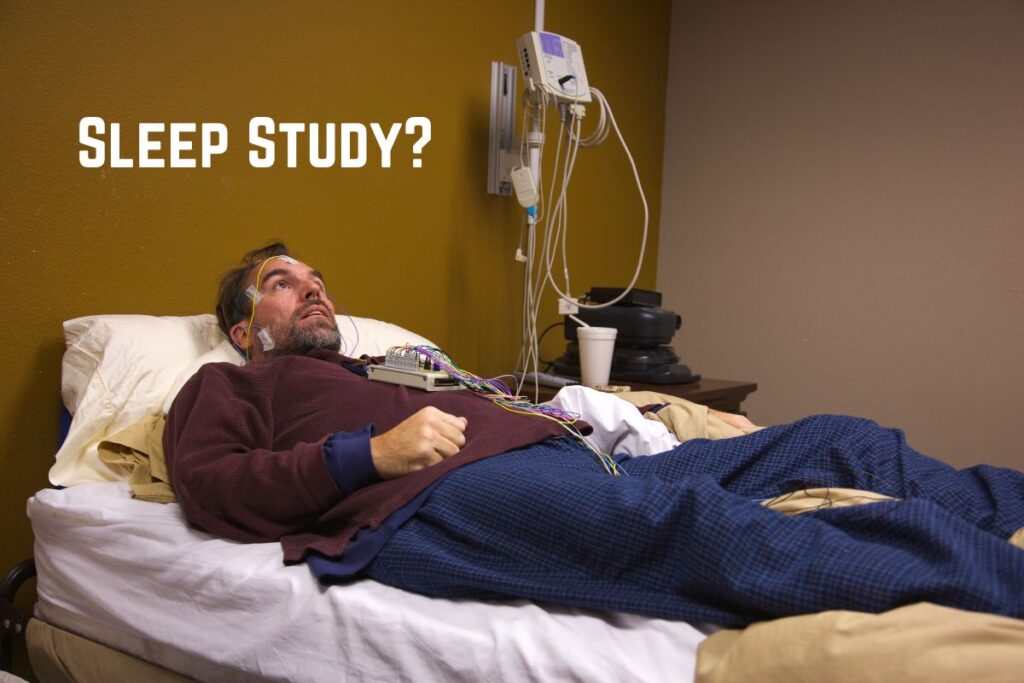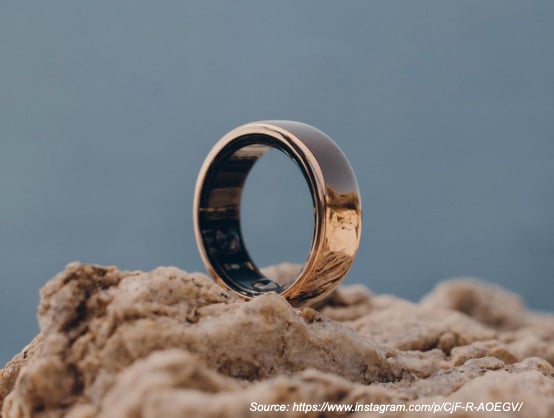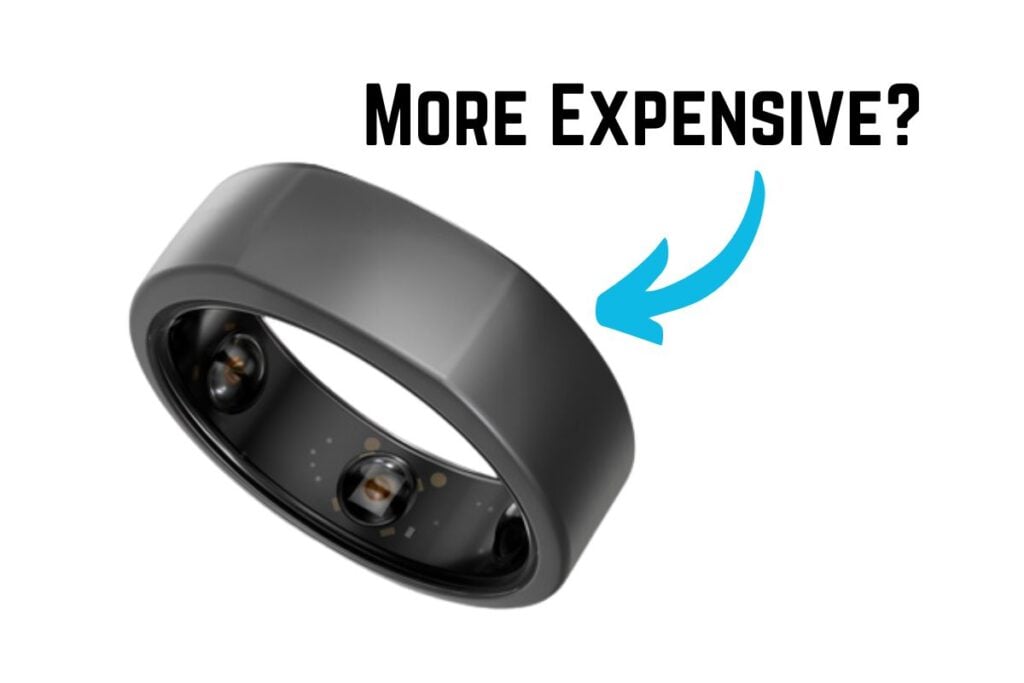Can Oura Ring Detect Sleep Apnea? (Truth Exposed!)
Sleep apnea is a problem where your breathing stops during the night, waking you up and ruining your sleep quality. Can Oura Ring detect sleep apnea?
Yes, the Oura Ring can detect sleep apnea by measuring your blood oxygen levels during the night. If your blood oxygen levels repeatedly drop, you may have the condition. The Oura Ring can also notice sleep apnea conditions when you wake up during the night.

I was diagnosed with a fairly mild case of sleep apnea a few months ago. I first found out by using my Oura Ring and then talked to my doctor for a diagnosis. Sleep apnea is common and many people are not aware they have this condition.
How to Know if You Have Sleep Apnea
Not everyone remembers repeatedly waking up gasping for breath during the night. You might have the condition without being aware of it. Some of the signs are:
- Dry mouth and throat after you wake up
- Tiredness
- Low energy, irritability, and poor concentration
- Headaches
- Getting more sleep doesn’t make you less tired
- Loud snoring
Your Oura Ring can help you detect sleep apnea. It measures how often you wake up during the night and, more importantly, your blood oxygen. If your breathing stops during the night, your blood oxygen will go down, and your Oura Ring will notice that.
Does Oura Track Oxygen?
Yes, the Oura Ring uses sensors to track how much oxygen is in your blood. Whenever you sleep for more than three hours, the Oura Ring gives you information about how oxygenated your blood was during the night. An Oura Ring can do much more than measure how many calories you burn.
Does Oura Ring Have an Oxygen Sensor?
Strange as it sounds, the ring uses light to detect how much oxygen is in your blood. It also uses light to measure your heart rate. You can use light to collect accurate biometric information.
Oura Rings use powerful technology and can help you improve your health. They are a bit expensive, but you can find them for a lower price sometimes.
How the Oxygen Sensor Works
To measure blood oxygen, the ring’s LED sends pulses of red and infrared light at your finger. The sensors then measure how much light is reflected, and use that to determine how much oxygen is in your blood.
If your blood has enough oxygen in it, the infrared light will be absorbed and the red light will be reflected. The sensor will detect mostly red light, and your report will show that your blood oxygen levels are normal. If there is not enough oxygen in the blood, it will absorb red light but reflect infrared light.

How to Check Your Blood Oxygen With the Oura Ring
Go to the sleep tab to check information about your blood oxygen. You will see your average blood oxygen and your breathing regularity.
What if Your Oura Ring Isn’t Measuring Blood Oxygen?
First, go to the menu (three lines) at the top left corner of your screen on the home tab. Go to blood oxygen sensing (sometimes called breathing regularity instead) and slide the toggle to the right to activate it.
Improving Your Blood Oxygen Levels
People often feel calmer and better if they learn to breathe more deeply. Consciously choose to breathe more until you can do it unconsciously.
Walking can oxygenate your blood. Light physical activity will make you breathe more. Walking outdoors is better than light indoor exercise.
While this isn’t easy, you should quit smoking cigarettes. You won’t stay addicted forever, the cravings disappear completely given enough time.
Blood Oxygen Variations
It isn’t always a big deal if your blood oxygen varies during the night. When you are having an intense dream, your breathing might slow down or stop – this is true even for healthy people.
Your breathing regularity score doesn’t need to be “optimal,” and it might not need to be “good” either. Sometimes, even if it reads “fair,” there is not any problem.
However, if it goes down to “pay attention,” you should improve your breathing and talk to a doctor if it won’t improve. Remember that a somewhat difficult life change like quitting smoking or losing weight will make your life easier and not harder in the long run.
When to Talk to Your Doctor
Healthier habits won’t always treat sleep apnea. If you believe you have this condition, talk to your doctor and get a sleep apnea mask if the condition is severe. Sometimes you can get rid of sleep apnea completely, but you might need a mask for quite a while.
How Accurate is Oura for Sleep?
The Oura Ring performs very well as a sleep tracker and can measure how long you spend in each stage of sleep. It gives you a detailed graph showing what type of sleep you were in at each time of the night and not only an overall sleep score.
The Oura Ring is proven to work because it has been compared to the most advanced medical methods. If you compare the Oura Ring to the methods sleep labs use, you get similar results, so the Oura Ring can accurately record what stage of sleep you are in at each time.
Is the Oura Ring Proven to Work?
Yes, medical research proves that the Oura Ring is effective and that newer models are better than older models. The best medical method is PSG (polysomnography), which requires a lot of equipment and isn’t right for everyday home use. PSG is what sleep specialists use to find out about your sleep in detail.
A study involving many subjects, sleep doctors, and technicians proved that the Oura Ring produces results similar to PSG. In some ways, the Oura Ring is even better than the PSG method.
Since people usually spend only a few nights at a sleep lab, it only records information for a few days. An Oura Ring can measure your sleep for weeks, months, or years. It is also objective – there are no doctors or technicians evaluating your scores.
What Does Oura Ring Detect?
Possibly, the Oura Ring may be able to detect Covid-19 in its early stages. If your body temperature is increasing, you may not notice that you have a fever right away, but the Oura Ring will.
There is no exact list of illnesses that the Oura Ring may detect early. Many people notice something is wrong early if they wear an Oura Ring. If your temperature, heart rate, heart rate variability, respiratory rate, blood oxygen, or sleep suddenly changes, something may be wrong.
Changes in things the Oura Ring measures don’t always mean anything is wrong. However, if you want to be on the safe side, talk to your doctor when you suspect something is wrong due to significant changes.
Key Takeaways
- If you worry about sleep apnea, look at the Oura Ring’s measurements for your blood oxygen levels or breathing regularity.
- Talk to your doctor to get a conclusive diagnosis. You might have another condition.
- The Oura Ring’s measurements, including for sleep, are accurate.
- You may be able to find out that you are sick with many other illnesses early by looking at the Oura Ring’s measurements.
